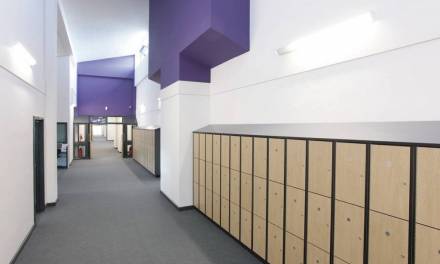Challenging behaviour in teenage school students can disrupt learning environments and hinder academic progress. To address these behaviours effectively, it is crucial to understand their root causes. These behaviours often stem from a complex interplay of psychological, social, and environmental factors. Identifying and addressing these underlying issues can lead to more effective interventions and a supportive educational experience for all students.
1. Psychological Factors
One significant source of challenging behaviour is psychological factors. Adolescence is a period of significant cognitive and emotional development, often accompanied by identity exploration and heightened sensitivity to peer perception. Mental health issues such as anxiety, depression, and attention-deficit/hyperactivity disorder (ADHD) can manifest as disruptive behaviour in the classroom. For instance, a student with ADHD may have difficulty concentrating, leading to restlessness and impulsive actions. Similarly, a student experiencing depression might exhibit withdrawal, irritability, or defiance.
2. Social Factors
Social dynamics play a crucial role in shaping teenage behaviour. Peer relationships, family environment, and social expectations can all influence how students behave in school. Bullying, peer pressure, and the desire to fit in can lead to negative behaviours as students navigate complex social hierarchies. For example, a student might act out to gain acceptance from a particular group or to mask insecurities.
Family environment is another significant social factor. Students from homes with high levels of conflict, instability, or lack of support may exhibit challenging behaviours as a way to express distress or seek attention. Understanding the student’s home life and providing family support services can be essential in addressing these issues.
A simple way to encourage positive social engagement is to enrol your child into a range of clubs and activities. This is a great opportunity for your child to meet friends with similar interests and engage in a positive leisure time activity.
3. Environmental Factors
The school environment itself can contribute to challenging behaviours. Overcrowded classrooms, lack of resources, and unsupportive teacher-student relationships can exacerbate behavioural problems. Students may act out if they feel misunderstood, neglected, or unfairly treated by teachers or administrators. Additionally, a curriculum that does not engage or challenge students appropriately can lead to boredom and subsequent disruptive behaviour.
Creating a positive school climate, fostering strong teacher-student relationships, and ensuring that the curriculum is inclusive and engaging can mitigate these environmental factors. Professional development for teachers on classroom management and culturally responsive teaching can also help create a more supportive and understanding school environment. It is also essential that, if your child fails to follow school policy, sanctions are received to hopefully discourage a repeat of the unacceptable behaviour. If this is still ineffective sanctions in the home environment should be considered.
4. Biological Factors
Biological changes during adolescence, including hormonal fluctuations, can impact behaviour. These changes can affect mood, impulse control, and stress levels, making teenagers more prone to emotional outbursts and risk-taking behaviours. Additionally, sleep deprivation, which is common among teenagers, can exacerbate these issues, leading to irritability and difficulty concentrating.
Educators and parents can support students by promoting healthy lifestyle habits, such as adequate sleep, balanced nutrition, and regular physical activity. Schools can also implement programs that teach stress management techniques and provide opportunities for physical exercise.
5. Academic Factors
Academic difficulties can be both a cause and a consequence of challenging behaviour. Students who struggle with learning disabilities or who are not achieving academic success may act out due to frustration, low self-esteem, or a desire to distract from their struggles. Identifying and supporting students with learning difficulties through individualised education plans (IEPs) and targeted interventions can help reduce these behaviours. Schools should also offer a range of qualifications with varying difficulty and assessment styles (for example BTECS and GCSEs) which will enable all students to experience some form of success.
Try a DfE-accredited alternative provider of online education
EDClass, with its personalised learning approach and dedicated support, can play a crucial role in addressing these root causes, empowering students to overcome challenges and reach their full potential. To learn more about how EDClass can implement a supportive solution to overcome behavioural challenges call 01909 776902, send an email mail@edclass.com or book a free online demonstration here.









